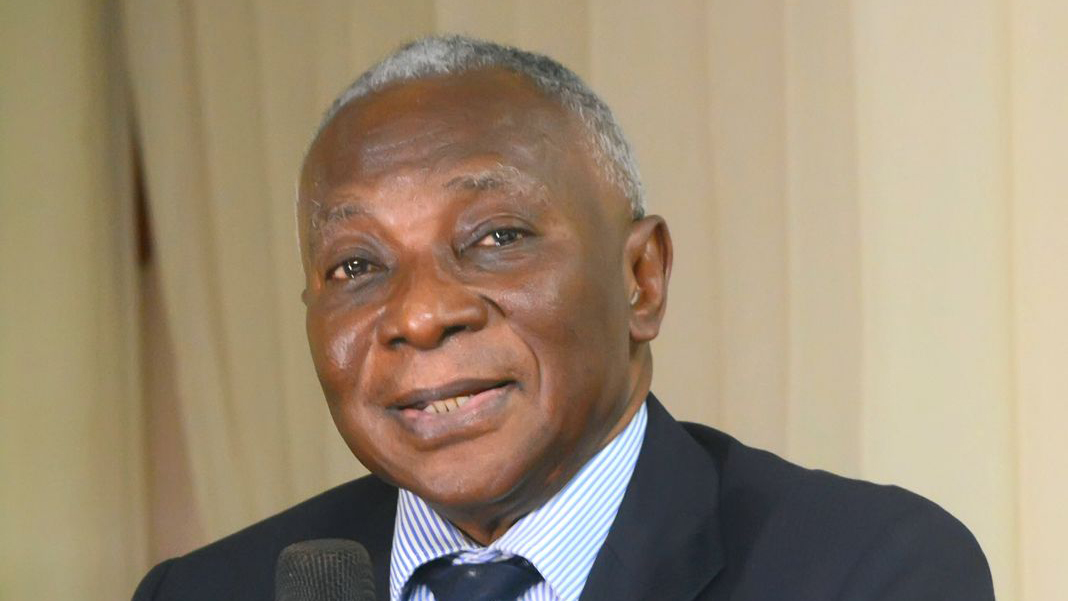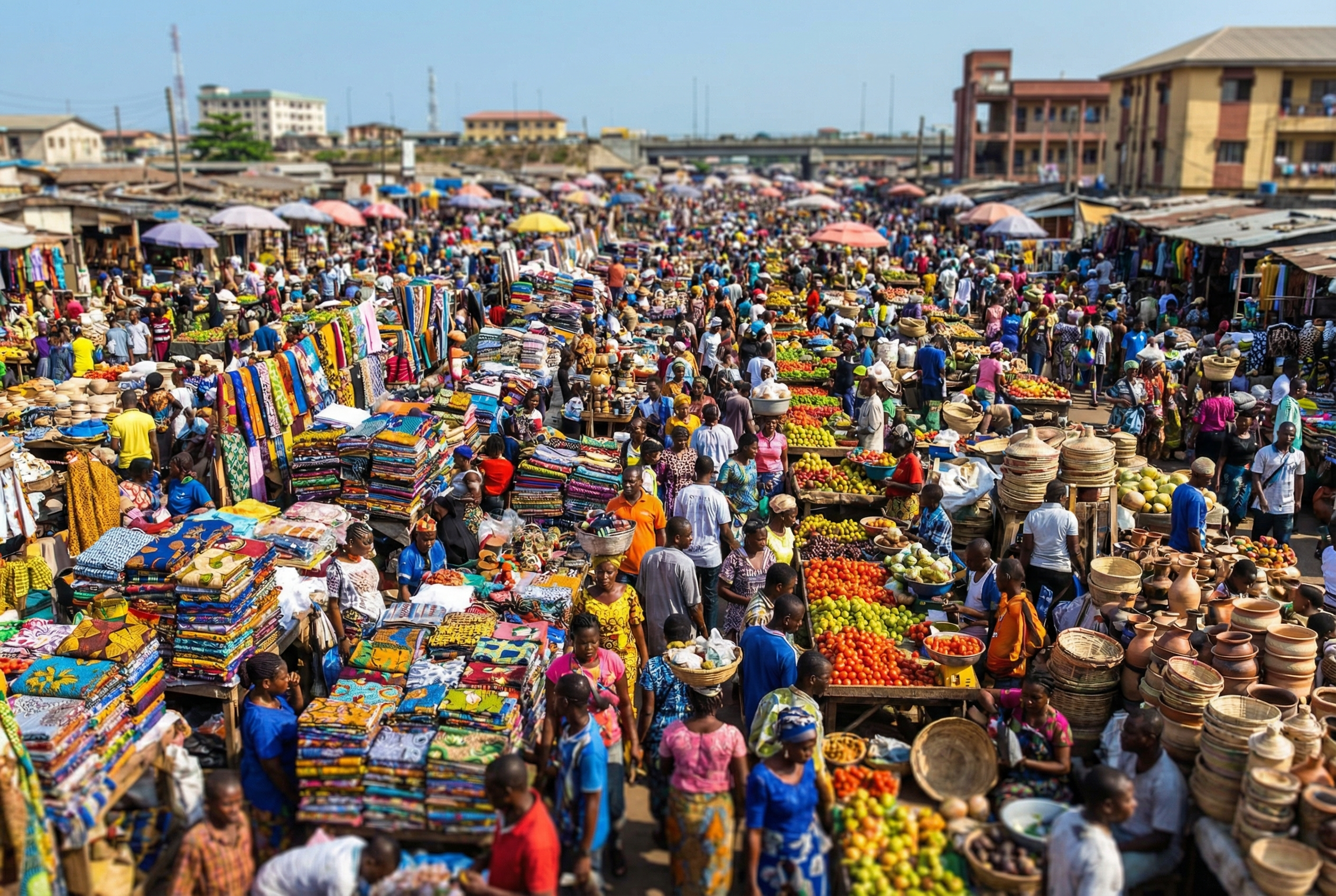 PRESIDENT Muhammadu Buhari’s visit to Ogun State saw him participating in activities commemorating the creation of the state by military decree in 1976. He commissioned many ambitious projects embarked upon by his political associate, Ibikunle Amosun, in the mission to rebuild the state. Top in the list of infrastructure projects are the fly-over roads (not bridges) constructed by the governor. In addition to the obvious members of his entourage (VP and ministers from the southwest) the President might well have considered bringing professors in town and urban planning, to carry out a case study of the Amosun template in rural transformation.
PRESIDENT Muhammadu Buhari’s visit to Ogun State saw him participating in activities commemorating the creation of the state by military decree in 1976. He commissioned many ambitious projects embarked upon by his political associate, Ibikunle Amosun, in the mission to rebuild the state. Top in the list of infrastructure projects are the fly-over roads (not bridges) constructed by the governor. In addition to the obvious members of his entourage (VP and ministers from the southwest) the President might well have considered bringing professors in town and urban planning, to carry out a case study of the Amosun template in rural transformation.
In the past, we have had the Lagos Executive Development Board from Adeyemi Lawson’s tenure as Chairman of the City Council, which developed Surulere estate for relocating residents of Ereko, situated between Broad Street and Nnamdi Azikiwe Street in the heart of Lagos Island. We had the demolition of Maroko Village in the military regime of Governor Rasaki of Lagos State. The same amiable Rasaki could not do the same in Abeokuta when his administration wanted to expand the narrow roads in the city. The costs of compensation made the projects unrealizable. We also had the case of the channelization of the Ogunpa stream through the heart of the commercial area of Ibadan. Civilian Governor Bola Ige personally watched the knocking down of African Church Cathedral in the path of the expanded channel. This necessitated exhumation of Bishop Ephraim Obigbesan’s remains interred at the entrance. Lagos State also demolished buildings on the land acquired for the road and rail route of the Lagos-Badagry Expressway.
In historical perspective and scope, however, Amosun’s daring is unprecedented in Nigeria. His predecessor, Olugbenga Daniel, a structural engineer, complied with (was constrained by) the universal requirements known as Resettlement Action Plan (RAP). It is understandable, as every person brings his background into every assignment. The RAP could be followed to the letter, in the expansion of the Abeokuta-Siun-Sagamu Interchange Federal Highway, as there was alternative land and time to build new houses for the villagers before they were relocated. At the time, Obasanjo, as President, donated, for the project, a Hydroform machine for producing interlocking bricks using laterite excavated from the earthworks on the eastbound lanes being built. A formal ceremony at Logbara village marked the handing over of the first set of houses. The World Bank commended Daniel and adjudged the scheme “a successful example of RAP” and used it in the statutory Training Workshops preceding commencement of the Lagos Metropolitan Area Transportation Authority.
The challenges of expanding roads in an ancient town are summated in the words of the greatest road builder in the 2oth century, American Robert Moses: “You can draw any kind of picture you like on a clean slate and indulge your every whim in the wilderness in laying out a New Delhi, Canberra, or Brasilia; but when you operate in an overbuilt metropolis, you have to hack your way with a meat axe.” Moses’ achievements in New York metropolis were possible because he had the backing of executive power by Governor Alfred Smith, a grassroots politician raised in the working class and steeped in the politics of “Tammany Hall.” In a democracy such as Great Britain, it was an exceptional feat that Baroness Margaret Thatcher could mould consensus to ensure British contribution to the Channel Tunnel. Without her doggedness, and given the usual public hearings and political considerations, the project would have been debated into oblivion. In a situation of competing needs, to justify allocating a major proportion of limited public resources to a specific area, a leader must decide his legacy project(s), and have the ability to drive his vision to concrete reality. The historian Raymond Moley stated it thus: “Pure democracy has neither the imagination, nor the energy nor the disciplined mentality to create major improvements. From the pyramids of Egypt, the rebuilding of Rome after Nero’s fire to the creation of the great medieval cathedrals, all great public works have been somehow associated with autocratic power.” Nigeria’s history of governance confirms this.
In 2011, to build urban expressways, Ibikunle Amosun was undeterred by the professional advice of his competent civil service engineers, that the cost of compensation was prohibitive. Why not construct a Ring Road (like Paris’ la Peripherique), which would expand the city into planned suburbs? Known for his trekking, the Governor went along the routes on foot, talking directly to the residents. “We will take a little from the left and a little from the right. Please bear with us. It is for the progress of the city.”He gave the deadline for them to move and the date when the demolition of houses in the road alignment would commence. And pronto, equipment manned by Chinese supervisors and their Nigerian artisans went to work, cutting houses with precision. No structure was left out: churches, mosques, storey buildings, bungalows, cemeteries and shrines. The Chinese wondered how people could live in such mud houses which are unfit for human habitation. Yet, the inheritors insisted on retaining the 17th century hovels because, as in many ancient Nigerian cities, the remains of their forbears were buried in the front, back and sides of the houses. There was the case of an inheritor of a room from the grandmother’s house. When he passed on in Lagos, his earthly remains were brought to Abeokuta and interned by the window of the room allotted to him.
When he comes to Ogun State, President Buhari will be taken on drives along these “Ogun Standard” roads. The greater parts of improvements are on federal highway running through Abeokuta, Ijebu-Ode Sagamu, Ilaro and Otta. Fasola, his (roads minister) understands all too well, the challenges governors face over federal roads passing through cities in the states. The Federal Military government took over many roads from the existing 12 states in 1974. In 1976, Ogun State emerged one of the newly created 19 states, inheriting assets on ground. At this time, there is an urgent need to review and re-classify segments of these federal roads; especially in urban areas.
Also, the President would notice the ugly structures framing the modern roads; the remaining halves of demolished buildings. Only a few of the owners who received compensation applied the booty to develop befitting structures on the corridors of the urban expressways. What they did first was to exhume bones and teeth and, in elaborate ceremonies, re-buried in villages, as every part of the city has villages. In many cases the money was shared among descendants of a family patriarch (of many centuries back) with many wives in days of yore. Each recipient ended with a pittance.
Every political leader has a limited tenure. The achievements of one era constitute the foundation for successors and also present the challenge to improve on the status quo. The construction of expressways unearths other problems and opportunities. Beyond the “befitting structures” that will be developed on the sides of the new urban roads, there is need to study what lies behind the façade; the compounds consisting the same types of buildings that have given way to the urban expressways. This will make it possible to plan and design layouts, which Local Government administrators must accept responsibility for their roads. Amosun is proving the veracity of an axiom for development: where there is the will, the means can be found for public projects. Robert Moses said: “once you drive the stakes into the ground, they’ll never make you pull them up.”
The question is apt: have future administrations in Ogun State as well as in Nigeria been offered a template for transforming our unplanned, ancient cities nationwide?
• Akindele is a visiting member of The Guardian Editorial Board






